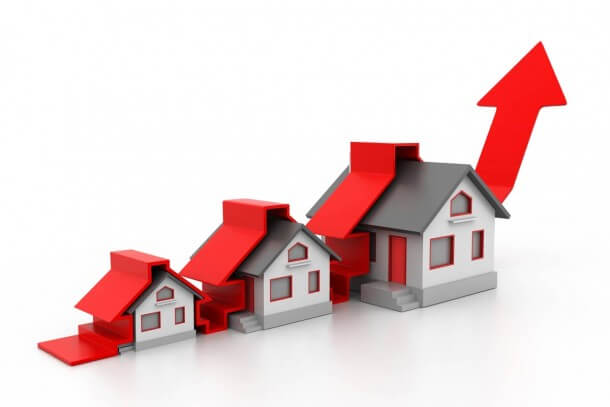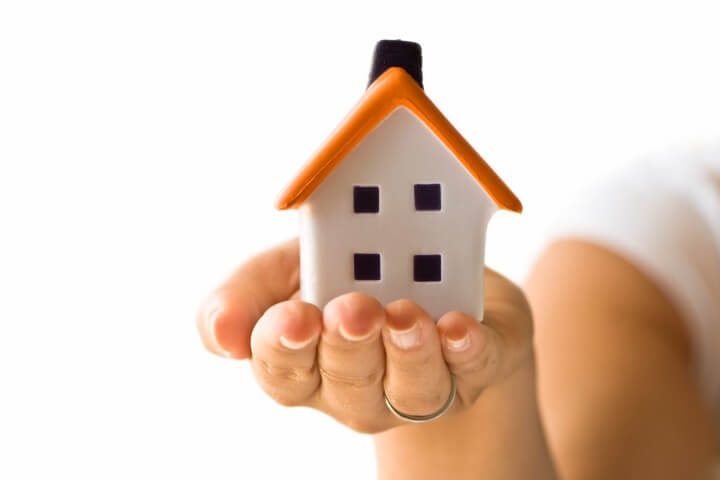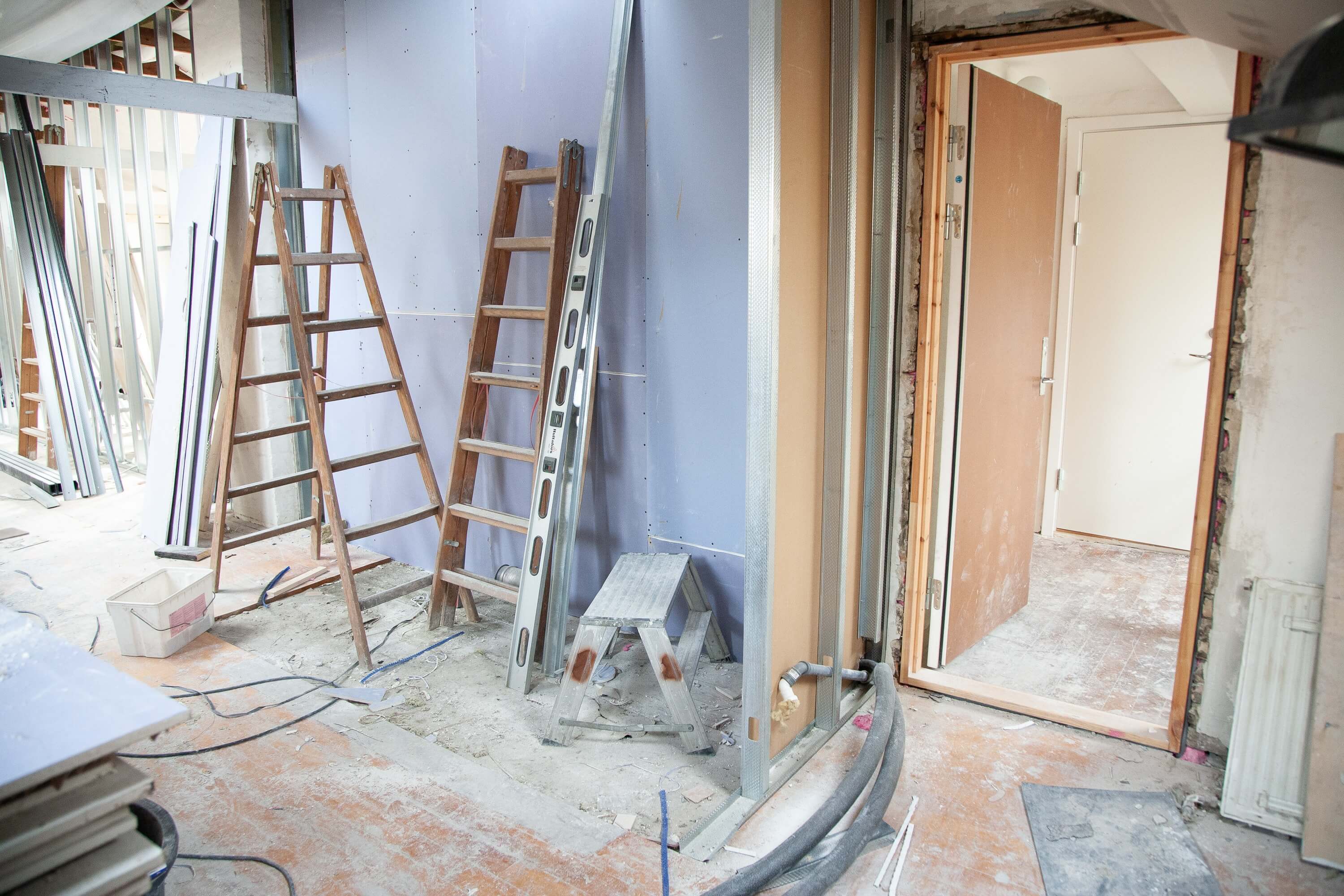What is a Home Improvement Loan?
A home improvement loan is utilised by homeowners to undertake work on their property, with a view to increasing the value of the property. By doing so, property owners will very often also improve the quality of living in the property for them and their family. This, along with the physical improvements to the property mean that if and when the property is sold, it can fetch more, with desirable additions and improvements.
As a second charge mortgage, a home improvement loan will be taken out alongside an existing first charge mortgage on the property. With the loan very often then used to increase the value of the property for the owner to then remortgage further, utilising the ‘earned equity,’ created by the increase in value as a result of the renovation works. The two most common variations of home improvement loans to be considered are secured and unsecured home improvement loans:
Secured Home Improvement Loans - When home improvement finance is secured against a property, lenders may be more willing to provide the required loan, as there is a greater degree of security on the loan. Hence, should the borrower default on the loan, they stand to have their property repossessed by the lender to recoup costs.
Unsecured Home Improvement Loans - Unsecured finance for home improvements, as their name suggests, are not secured against any assets or 'collateral.' Therefore, the degree of risk the lender takes on is greater. For this type of finance, lenders are likely to be stricter with regards to how the loan in question is funded, what the money will be used for, the timescale for repayment and precisely how much is to be lent to the borrower altogether.
How Do Loans For Home Improvement Work?
Home improvements can help you improve the quality of life yo uand your family lead in your home, by increasing the living space in your property or updating the decor to update everything. When undertaking any home improvements or DIY projects though, things can become expensive and thus, a home improvement loan can help you cover the costs of the work, materials and labour to achieve the renovations you need for your property.
Whether you need a loft extension, ground floor extension or just a new bathroom or kitchen, being able to borrow money in the form of home improvement loans can help you get the money you need to improve your home and even, increase its value.
Loans for home improvement can be provided in a single lump sum, to help give you all the cash you need to pay for the works. As a second charge mortgage, you may be able to get a larger loan for home improvements, with the loan amount directly tied to the amount of equity you already own in your property, even if you are already paying a first charge mortgage. Once funded, the loan can then be used for the necessary and chosen renovation or home improvement works.
Second Charge Home Improvement Loans from The Second Mortgage Company
Many people who own their property will be in the process of repaying their mortgage, perhaps over 10, 20 or even 30 years. Tied into a mortgage, secured against the property, it can at times be expensive to remortgage or even switch providers. Unsecured finance is not always an option and your current lender may not wish to lend you on the basis of a mortgage advance. Furthermore, typical lenders of secured home improvement loans may not be willing to lend at all, if there is a first charge mortgage on the property already.
However, if you still want to undertake works, investing in your property to improve its value, funding home improvements with a second mortgage is a clever way to do so. Second charge mortgages for home improvement are often approved by your first charge lender as they understand the improvements this finance will enable, chiefly, the increase in value, making the property a better investment for all parties. Lenders also recognise that unlike in cases of unsecured home improvement loans, there is a greater emphasis on the borrower to repay the loan as the second mortgage for home improvments is secured against the property, meaning borrowers stand to have their property repossessed if repayments are not made.
According to data from MoneySuperMarket,home improvement loans in the UK are the most commonly utilised loans for people over the age of 65.
How Can You Improve a Property?
‘Improving a property’ tends to refer to adding desirable characteristics and features to a home, making it a better prospect when valued and sold. Common improvements include:
- Loft Conversions and House Extensions
- Kitchen Refurbishments
- Bathroom Refurbishments
- Total Property Redecoration
- Adding a Conservatory
- Updating the Central Heating and Plumbing
When potential buyers and valuers look and assess a property, there are a number of well-established characteristics which if present, make the property that bit more appealing and desirable, hence the improvement to the property. more often than not, the improvements will also make living in the property more comfortable which in itself is desirable.
Benefits of Home Improvement Loans
The benefits to be enjoyed as a result of a home renovation loan are many and range from simple increases in a property’s value to improving the lives of the occupants and more:
Increased Property Value – By increasing the property’s value, should you look to sell, you will have created additional equity in the property which will therefore increase its value, fetching more on the property market.
Additionally, adding popular features such as loft conversions, conservatories and new central heating to a property through building work which future owners may realistically seek to undertake themselves, means that prospective buyers may look at the property as 'money saved.'

Increased Living Space – When, subject to Planning Permission, a property is improved through the likes of loft conversions and extensions, basements, conservatories and other conversions and extensions, the square footage of the property will mean there is more to sell, again increasing its value and home improvement finance can provide this. Furthermore, for those living there as well as any prospective buyers, there is more living space to be enjoyed and fully utilised, a hugely desirable criteria for buying a property.

Enabling Remortgaging – You may need to remortgage your property in order to use the money for a whole host of purposes. However, with a property’s current value, a lender will have a maximum amount of the property’s equity against which they will lend; this is known as the Loan-to-Value (LTV.)
For example, if a property is worth £500,000, lenders may not be willing to lend more than say 50% (£250,000.) However, if through works you increase the value of the property to £550,000, that percentage is worth more as a result of the ‘acquired equity.’

Securing a Loan Against Your Property
By using your property as security for a loan, be it a secured home improvement loan or other type of second mortgage, the degree of risk to lenders is greatly reduced. If the lender is not repaid and the borrower [homeowner] defaults on the loan or mortgage, the lender may be able to undertake repossession proceedings to recoup their losses, whereas in cases of unsecured loans, there is no security so the costs on the loan are higher.
You should therefore always remember to keep up with your repayments and obligations and should you at any point be unable to make your repayments, inform your lender as soon as possible.
What Types of Home Improvement Loans Can I Get?
Home improvement loans come in various shapes and sizes. However, the two main types of home improvement loans or home renovation loans available in the UK are secured home improvement loans and unsecured home improvement loans, both of which come with distinct features, advantages and disadvantages to consider.
Secured Home Improvement Loans
These are loans which are secured against a high value asset, such as a vehicle or more likely, a property. In the case of a secured home improvement loan, the borrower will be able to borrow many times more than in the case of unsecured loans. This is because there is an asset acting as collateral on the loan, which allows borrowers to receive a loan based on the equity they own in their property.
Althoguh you will still need to show a fair or good credit score, if you own a property which the loan is secured against, secured lenders may still be able to take a view and lend the money you need for home improvements. Usually, the better your credit score, the better the interest rates you will receive for the loan you borrow. Always be mindful though, that if you fail to make the repayments on your secured home improvement loan, you may lose your home and it may be repossessed.
Secured loans for home improvements are usually better suited to larger refurbishment and renovation works like extensions, full property renovations and restructuring, where more money is needed to fund the project.
Personal Loans For Home Improvements
Personal loans for home improvements will typically be in the form of unsecured personal loans. These loans will not allow you to borrow as much as secured options, as they are not tied to any collateral. They will also come with higher interest rates and in some cases could require you to have a guarantor on the loan in question. Whereas secured loans for home improvements can allow you to borrow potentially hundreds of thousands of pounds or even more, unsecured personal loans will usually only allow you to borrow up to around £25,000 before needing any collateral for the loan.
Because of the smaller size of these loans, unsecured personal loans for home improvements are generally more suited to smaller refurbishment and renovation projects like redecorating, fitting new windows and other similar work.

How Do Second Mortgage Repayments Work?
Repayments for second mortgages run alongside and concurrent with your first charge mortgage. Repayments are therefore also made in tandem with each other. It will simply be the case that you have two mortgages to repay, secured against your home.
So long as you keep up with your home improvement mortgage repayments [the second mortgage, you may be able to pay it off quickly, having seen the value of your home increase. Then, it may be possible to remortgage your first charge mortgage at a better rate, with now additional equity built up in the property.
Home Improvement Loan Alternatives
Secured home improvement loans, are by no means the only way of funding renovations, refurbishments and home improvements and there are other avenues to consider. However, many home improvement loans are secured loans, meaning there may well be more desirable rates on offer when compared to unsecured alternatives.
Using your savings is one of the best ways to pay for home improvement works, as you are unlikely to be left with any debt. Because your savings are likely to have been built up in a bank account over time, you will have instant access to the necessary funds and there will be no interest or charges for using this money. It is always best whenever possible to simply save up to finance home improvements.
Remortgaging Vs Home Improvement Loans
Home improvements are one of the most common reasons for remortgaging. If you currently have a mortgage, your existing lender or potential new lenders may be able to lend you (often more) money as a result of the increased equity you have built up over the course of your mortgage. However, be careful, as you may need to pay early repayment charges to your current lender if you leave your mortgage contract early.
Remortgaging can also cost you more over the long term as you will be extending the length and term of your mortgage.
Mortgage Advances to Finance Home Improvements
It may be that although you have a mortgage you have not borrowed as much as the lender will allow you to against your property (the maximum LTV.) You may therefore be able to borrow more with a mortgage advance against the value of the same property. This works as an effective add-on and extension to your mortgage. However, you will need to pay additional legal, solicitor, valuation and arrangement fees for a mortgage advance.
What Are the Disadvantages of Home Improvement Loans?
Although home improvement loans can be very advantageous and valuable, they do have some drawbacks that you should always bear in mind before taking out a loan for home improvement in the form of a second mortgage or otherwise:
Interest Rates – Rates for home improvement loans can be higher than you may expect for a standard first charge mortgage. The interest may also be very variable so you should account for this before you take out the loan
Fees and Charges – There are a number of sometimes expensive fees and charges to consider for home improvement loans such as legal, early repayment, valuation and arrangement fees
Potential Risk – As with any line of credit or form of finance, failure to keep up with your repayments will damage your credit rating and if the loan is secured against your property, you could stand to have your property repossessed
Apply for Home Improvement Loans Today
Get in touch with our expert team, based in the UK to find out how a second charge mortgage for home improvement could help you increase your property’s value and improve your quality of life and that of your family. We have over 50 years’ experience in the second charge market and can help you find the perfect product for your needs. Whether you are looking at borrowing money for an extension or are wanting to refurbish your kitchen, we provide loans from £10,000 up to £500,000 to meet your requirements. Home improvement loans can also be known as house extension finance, home renovation loan, home improvements finance and house extension finance.
Call Us Today: 0800 0831593
Email Us Today: info@thesecondmortgagecompany.co.uk
As a mortgage is secured against your home, your home could be repossessed if you do not keep up the mortgage repayments. Think carefully before securing other debts against your home.
